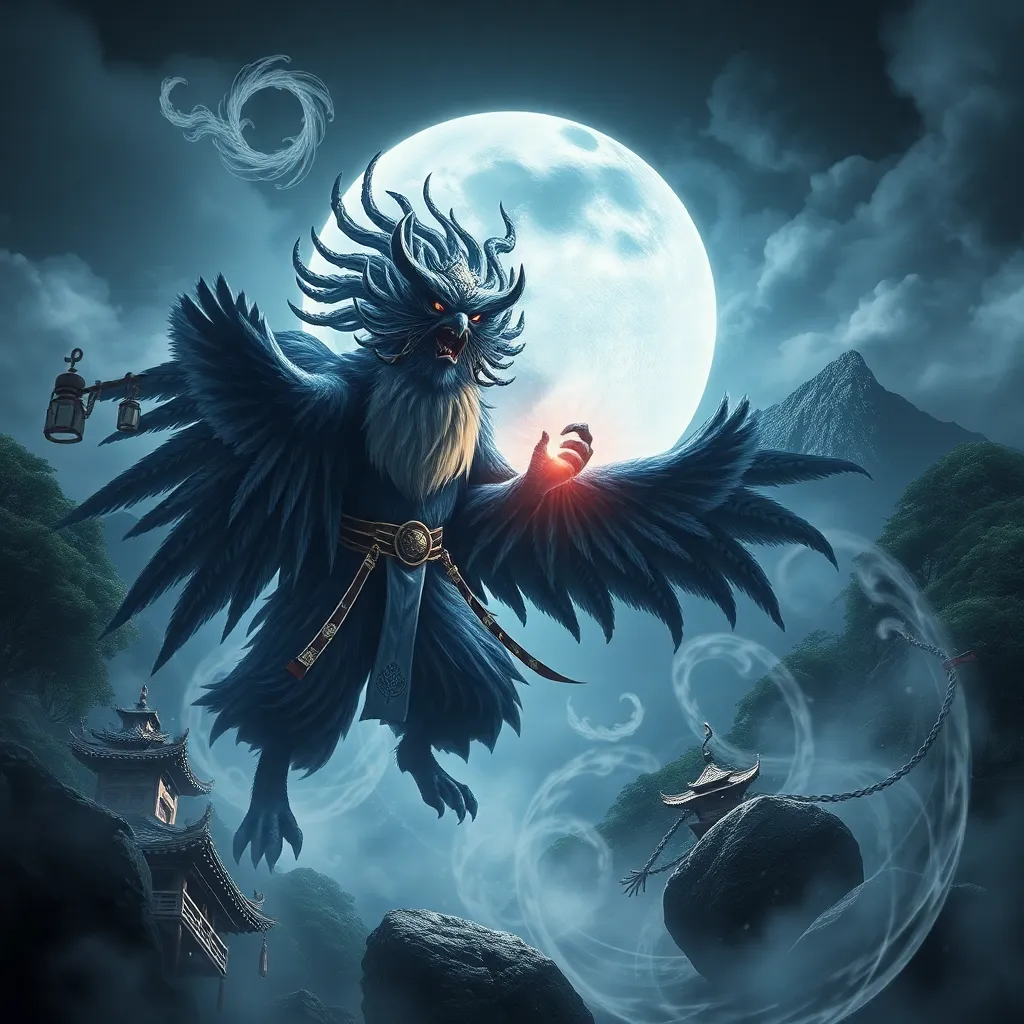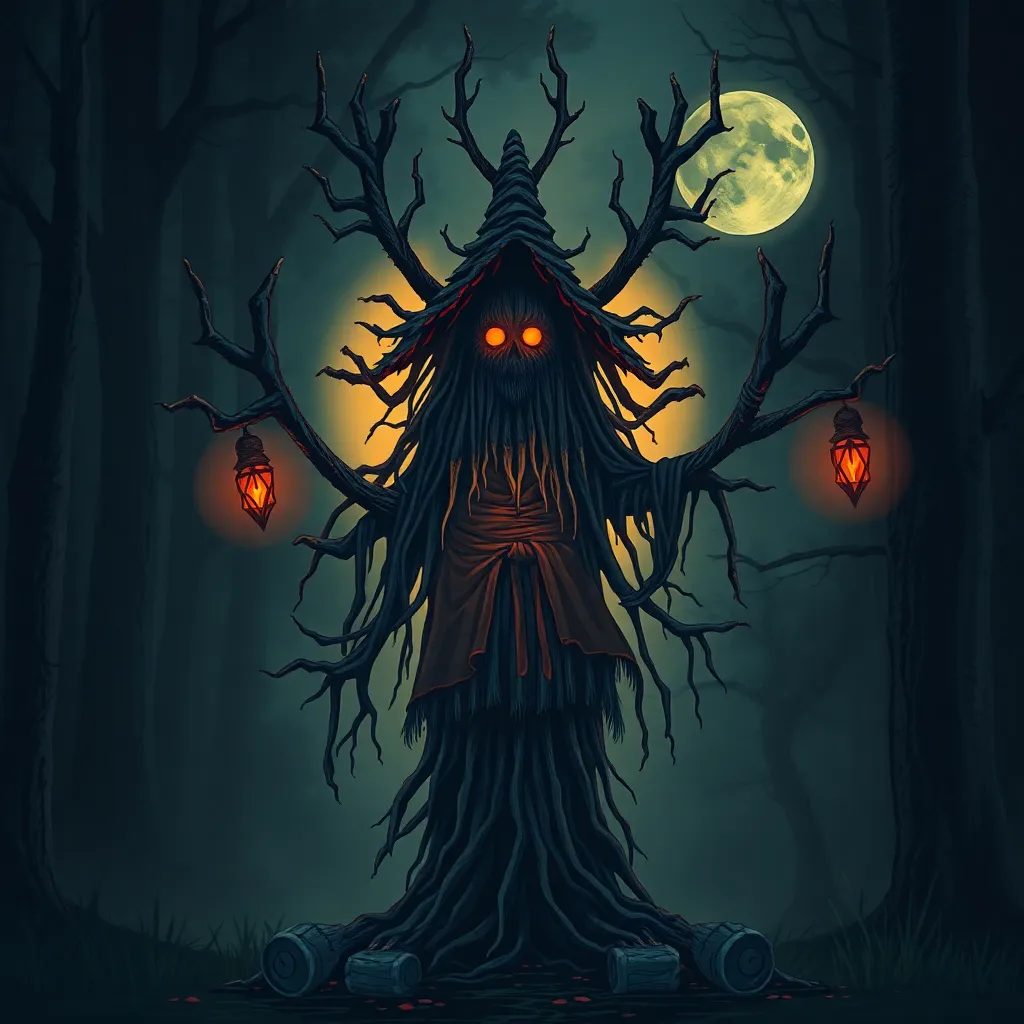The Tengu’s Connection to the Daoist Tradition: Exploring the Mountain Spirit’s Spiritual Role
I. Introduction
The Tengu, a prominent figure in Japanese folklore, is often depicted as a hybrid creature with human and bird-like characteristics. Traditionally viewed as both a protector and a trickster, the Tengu has captivated the imagination of many through its complex narrative and spiritual significance. In contrast, Daoism, a foundational aspect of East Asian spirituality, emphasizes harmony with nature and the pursuit of immortality.
This article aims to explore the Tengu’s spiritual role within the Daoist framework, delving into its historical origins, representation as a mountain spirit, and the principles that align Tengu mythology with Daoist beliefs.
II. Historical Origins of the Tengu
The history of the Tengu can be traced back to early mentions in Japanese literature, where it was often associated with mountain landscapes and spiritual realms. Initially, Tengu were viewed as malevolent beings that would lead travelers astray, but their portrayal evolved over time.
- Early Mentions: References to Tengu can be found as early as the Heian period (794-1185), where they were linked to the supernatural and considered harbingers of misfortune.
- Influence of Chinese Mythology: The Tengu’s characteristics were influenced by Chinese mythological figures, particularly the Daoist shan sheng (mountain spirits), who embody wisdom and nature’s power.
- Evolution Over Time: As Buddhism and Shintoism intermingled with Daoist beliefs, the Tengu’s image softened, leading to their acceptance as protectors of the mountains and guardians of sacred spaces.
III. The Tengu as a Mountain Spirit
The Tengu’s identity is deeply intertwined with nature, especially mountain landscapes. In Daoist philosophy, mountains symbolize strength, stability, and spiritual elevation, which resonates with the Tengu’s role as a guardian of these natural realms.
- Connection to Nature: Tengu are often depicted inhabiting remote mountain areas, emphasizing their connection to the natural world and the belief that they embody the spirit of the mountains.
- Symbolism of Mountains: In Daoist thought, mountains represent the pathway to enlightenment and immortality, aligning with the Tengu’s role as guides and protectors on this spiritual journey.
- Role in Ecosystems: Tengu are said to maintain the balance of local ecosystems, fostering respect for nature and encouraging harmonious living within communities.
IV. Daoist Principles Reflected in Tengu Mythology
Tengu mythology reflects several key Daoist principles, particularly the balance of yin and yang, the mediation between realms, and the pursuit of immortality and enlightenment.
- Balance of Yin and Yang: Tengu narratives often portray the duality of their nature, demonstrating how they embody both benevolent and malevolent traits, reflecting the Daoist belief in balance.
- Mediator Role: Tengu serve as intermediaries between humans and the spiritual realm, guiding individuals on their quests for knowledge and spiritual growth.
- Immortality and Enlightenment: The Tengu’s association with mountain ascetics and hermits showcases the Daoist ideals of transcending mortality and achieving enlightenment through disciplined practice.
V. Tengu as Guardians of Spiritual Knowledge
Tengu are often revered as protectors of sacred spaces and knowledge. Their lore frequently intertwines with martial arts and the transmission of esoteric wisdom.
- Protectors of Sacred Spaces: Tengu are believed to guard temples, shrines, and other spiritual sites, ensuring that only the worthy can access the knowledge and power contained therein.
- Transmission of Knowledge: Many martial arts schools claim to be influenced by teachings from Tengu, who impart wisdom to dedicated practitioners.
- Comparison to Daoist Sages: Just as Daoist sages are revered for their wisdom and spiritual insight, Tengu are similarly respected for their understanding of the esoteric realms.
VI. Rituals and Practices Involving Tengu
Traditional ceremonies honoring Tengu can be found within Japanese culture, often reflecting a blend of Shinto and Daoist practices. These rituals serve to maintain harmony between the physical and spiritual worlds.
- Traditional Ceremonies: Festivals and rituals, such as the Tengu Matsuri, celebrate the Tengu and invoke their protection and guidance.
- Integration in Daoist Practices: Some Daoist practitioners incorporate Tengu veneration into their ceremonies, recognizing their role as protectors of nature and spiritual knowledge.
- Modern Interpretations: In contemporary spiritual practices, Tengu are often reinterpreted as symbols of resilience, adaptability, and the pursuit of enlightenment.
VII. Contemporary Perspectives on the Tengu in Daoism
The Tengu’s presence in popular culture has evolved, and its symbolism continues to resonate in modern spiritual practices and media.
- Presence in Popular Culture: Tengu appear in various forms of media, including anime, manga, and video games, often depicted as wise mentors or powerful warriors.
- Revitalization of Worship: A resurgence of interest in traditional spiritual practices has led to a revival of Tengu worship, with practitioners seeking deeper connections to nature and the spiritual realm.
- Symbol of Resilience: The Tengu serves as a metaphor for adaptability, reflecting the evolving nature of spirituality in a rapidly changing world.
VIII. Conclusion
In summary, the Tengu’s significance within the Daoist tradition reveals a rich tapestry of mythology that highlights its role as a mountain spirit, guardian of knowledge, and mediator between realms. The enduring legacy of the Tengu in East Asian spirituality underscores the importance of balance, respect for nature, and the pursuit of enlightenment.
As we explore the depths of Tengu folklore and its spiritual implications, we are invited to reflect on the interconnectedness of humanity, nature, and the spiritual realms that shape our understanding of existence.



